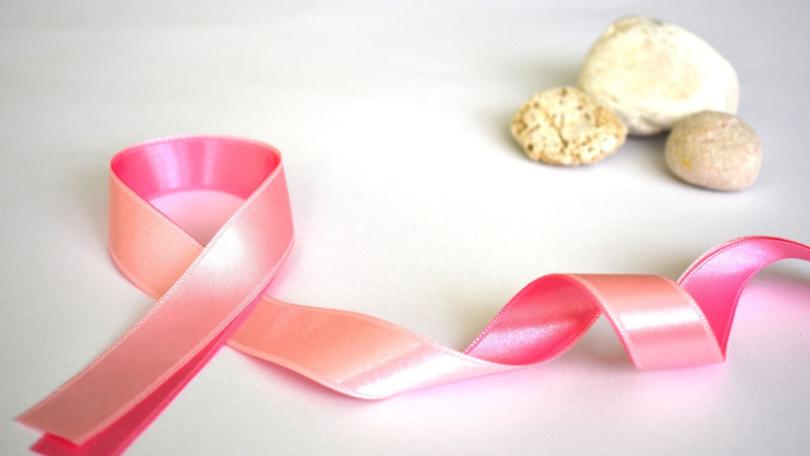Jenni Murray: Ignoring cancer scan letter absolutely my biggest regret
Almost exactly one year later, I noticed something odd in my right breast as I was showering. The nipple seemed to have sunk backwards. I asked my husband if he found it odd. He did.

It’s a long time ago, 20 years in fact, that I made the biggest mistake of my life. I was 54 years old with a demanding job; two sons, one of whom was still a teenager; and ailing, elderly parents.
As their only child, I had no siblings with whom to share their care. It was all down to me.
No wonder post and paperwork were frequently neglected. Even an invitation to attend a mammogram. I’d put the letter on the pile I laughingly referred to as my filing system, failed to put the date in my diary and forgot about it. I’d had no lumps or bumps. There had been no breast cancer in my family. Surely I had no reason to worry about it?
Sign up to The Nightly's newsletters.
Get the first look at the digital newspaper, curated daily stories and breaking headlines delivered to your inbox.
By continuing you agree to our Terms and Privacy Policy.Almost exactly one year later, I noticed something odd in my right breast as I was showering. The nipple seemed to have sunk backwards. I asked my husband if he found it odd. He did.
I was fortunate that, as the long-serving presenter of Woman’s Hour, I was well-informed about breast cancer. We’d discussed it often and I knew that an inverted nipple was a sign of the disease.
It wasn’t hard to get a GP appointment in 2005 and my doctor sent me straight to an oncologist. There was a mammogram, a needle biopsy and a quick diagnosis. I had cancer and would require a mastectomy.
My surgeon gently chided me, suggesting that, had I had the mammogram when I was invited, a lumpectomy might have sufficed, rather than the removal of the breast.
It’s so upsetting to hear that, all these years on, many women are making similar mistakes to me.
In a survey of 2,000 women, the NHS has found that nearly 17 per cent would not go – or weren’t sure whether they’d go – to a mammogram they were invited to.
Of these, 21 per cent said embarrassment about being topless would deter them. Almost one in four said that if they didn’t have symptoms they wouldn’t attend. And 18 per cent said they’d heard mammograms were painful so would rather not go.
What’s all this nonsense about toplessness? The radiographers I’ve had have all been women, kind, expert and gentle. What fool would let embarrassment put her life at risk? Mammograms can be uncomfortable as the breast is squeezed between plates. But it’s not painful. And thinking you’re OK if you have no symptoms is a mistake. I had no symptoms at the time of my invitation, but the cancer was still there, lurking.
These days, it’s even more important to spot cancer quickly, as getting the right diagnosis and treatment can be difficult.
The cancer charity, Maggie’s, spoke to dozens of patients about their experience of NHS care and found they are being ‘batted away’ and ‘ignored’ by their GPs.
Some patients have gone to A&E in the hope of getting help. Others have dialled 999. One woman said poor access to her GP had meant her diagnosis was delayed for months. She finally phoned 111 and, luckily, she was fast-tracked to a breast centre.
The pandemic-era assumption that treatment can be carried out effectively online or on the phone sadly appears to remain. One woman was given the news that her cancer had spread to her brain via a phone call. How inhumane must a doctor be to think it’s acceptable to deliver what was effectively a death sentence over the phone?
Maggie’s report insists that fixing the GP service is the priority when it comes to improving cancer care, since it’s our first point of contact. The charity also points to failures in technology and data sharing. Hospital doctors and GPs often have no way of finding a patient’s records. It recommends that screening programmes should include younger women, too. Only those aged 50 to 70 are invited for mammograms, but there has been a rise in the disease in those who are not yet 50.
Please, listen to this old bat who has been there, done that and definitely got the T-shirt. The minute that scan letter arrives, call and change the date if you can’t make it. Put a note in your diary or stick it up on the kitchen noticeboard. Don’t forget it. It could save your life. And, if you have any concerns, phone the GP.
I know how hard it can be to get an appointment nowadays. You call – you’re number 21 in the queue. You’re asked to fill in the lengthy assessment form. But just do it – none of us should neglect things that need attention.
If your GP won’t see you, don’t be afraid of, ahem, exaggerating your need. I put ‘fear of sepsis’ on my form when I had an infected toenail. It worked. Cancer fears should prompt them to see you quickly. If they don’t, make a fuss.
I don’t get invited for a mammogram any more because I’m in my 70s, but I check the remaining breast regularly. If I found any symptoms, I’d be battering down my GP’s door.
I have no regrets when I look back on my life – except my cavalier attitude to that invitation. It led to a mastectomy, chemotherapy and an ugly gap where the right breast used to be.
Two decades on, I’m just thankful to be alive. Please give yourself the same opportunity.
